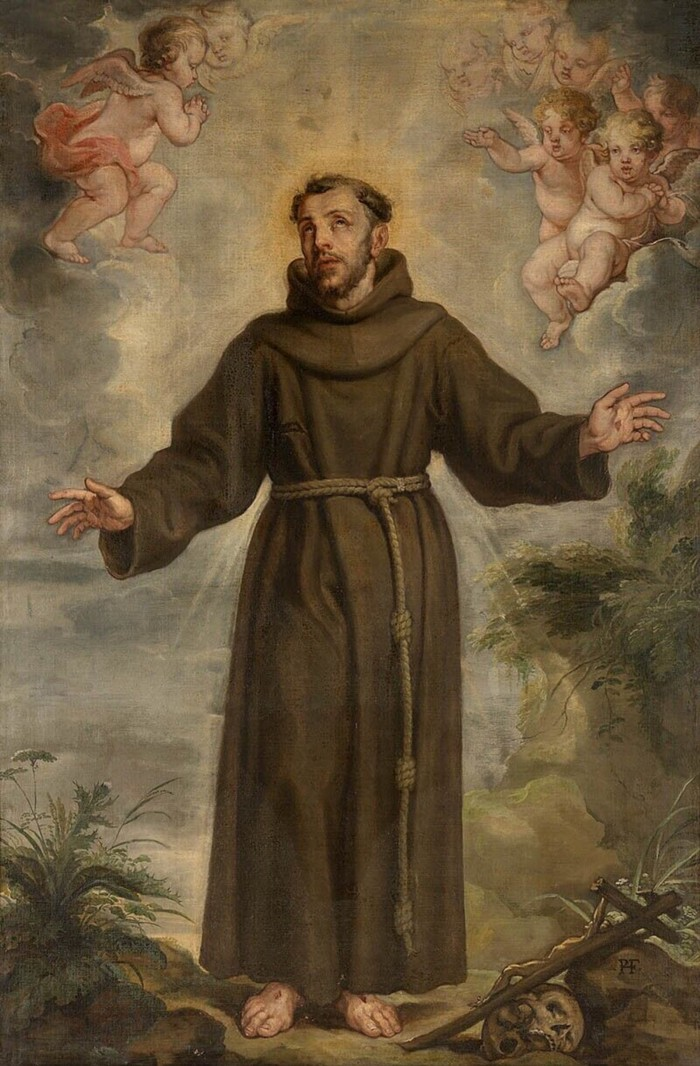St. Francis of Assisi
- stefanianedelcu90
- Aug 2, 2022
- 3 min read
Franciscan Order’s founder was born in Assisi, Umbria, in 1181

Photo of St. Francis of Assisi by Wikipedia
After returning from a journey to France in 1182, Pietro Bernardone learned that his wife had given birth to a son.
Pietro was outraged that she had named his infant kid Giovanni after John the Baptist rather than happy or sorry that he had been away.
The last thing Pietro wanted for his kid was a man of faith; instead, he wanted a businessman, a textile trader like himself, and he especially wanted a son who would embody his passion for France. He changed the name of his kid to Francesco, which is the same as saying “Frenchman.”
Thanks to his father’s money and the prevailing permissiveness of the period, Francis had a very comfortable and luxurious childhood. Everyone, and I do mean everyone, adored Francis from the start.
He was a born leader who was always cheerful and attractive.
People were willing to overlook his pickiness. People took care of him if he was unwell. No one cared if he performed poorly in school since he was such a daydreamer. He was in many ways too likeable for his own good. Nobody made an effort to instruct or rein him in. As he grew older, Francis rose to the position of leadership among a group of adolescents who frequently attended wild parties.
In other respects an exquisite youth, he attracted to himself a huge entourage of young people who were addicted to wickedness and used to vice, according to Thomas of Celano, his biographer who knew him well. I lived in sin throughout that period, Francis remarked.
Pietro’s hopes were completely realized by Francis, who even developed feelings for France. He adored French music, French romance, and especially French troubadours who were free spirits who traveled around Europe.
And although Francis dreamed, he was also a skilled businessman. Francis, though, desired more than money. Not however holiness! Francis aspired to be a knight and a nobleman.
The best way for him to obtain the fame and glory he desired was via battle. When Assisi waged war on its longstanding foe, the neighbouring town of Perugia, he had his first opportunity.
The majority of the Assisi soldiers were slaughtered during the conflict. Only those with sufficient income to anticipate being ransomed were captured. Francis was finally living among the nobles, as he had always desired, but he was shackled and kept in a grim, gloomy prison.

All reports indicate that he maintained his upbeat demeanor throughout his ordeal. He was finally ransomed after spending a year in the dungeon. Strangely, he didn’t seem to have changed by the experience. With the same excitement and zeal as before the conflict, he devoted himself to partying. The encounter did not alter his desire for glory in life either. He finally had the opportunity to pursue his passion when the Fourth Crusade issued a call for knights. Francis had to obtain a horse and a set of armor, but neither requirement was a difficulty for the affluent father’s son.
And only an armor set with a gorgeous cloak and gold decorations will do. The claims Francis left behind that he would bring back a prince would negate whatever satisfaction we may feel upon learning that he donated the cloak to a destitute knight.
But Francis was only ever able to go one day’s distance from Assisi. In a dream he had while there, God advised him to go back home after telling him he had everything wrong. And he did go home again. The child who only wanted to be liked was embarrassed, laughed at, labelled a coward by the community, and shouted at by his father for the money squandered on armor. Imagine what it must have been like to return without even making it to fight.

Comments